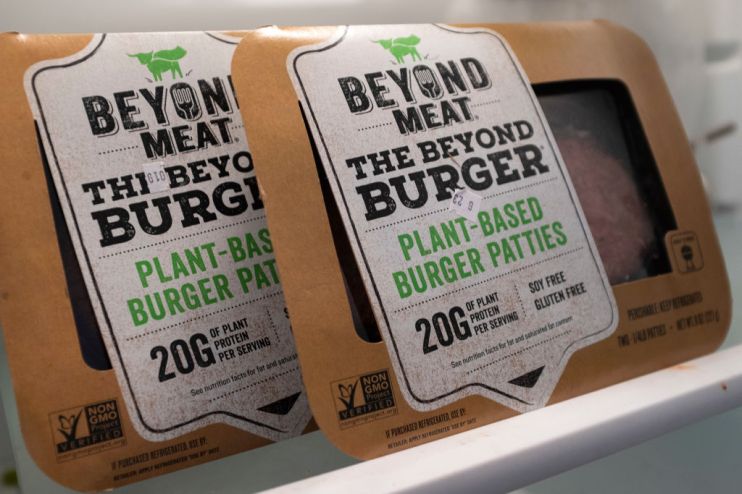Investors butcher Beyond Meat despite first profitable results

Shares in Beyond Meat plunged 20 per cent as the lockup period for early investors ended, despite the plant-based food company reporting its first quarterly profit.
Beyond Meat shares dropped over 20 per cent in trading before the bell on Tuesday as around three quarters of its stock became eligible for trading, giving early backers the chance to cash in their positions.
Read more: Short sellers take a bite out of Beyond Meat as shares slump
The shares recovered slightly after trading opened, and were almost 17 per cent down at $87.65 (£68.01) in early trading in New York.
Shares in the company soared following its initial public offering (IPO) in May. Having debuted at $25 they peaked at an intraday high of $239.71 in July, but have gone steadily downhill since.
“With the lockup ending on a large chunk of the issued shares, the stock is set to come under significant pressure,” said Markets.com analyst Neil Wilson.
“Despite coming off its highs, valuations still look remarkably steep and now will be seen by many pre-IPO investors as the time to cash out. Although it’s got the hype, rising competition means Beyond Meat does not have the vegan meat market all to itself.”
The meat-substitute specialist reported its first quarterly profit yesterday, but the company said it would need to offer more discounts as competition in the vegan food sector heats up.
Beyond Meat said its sales rose 250 per cent to $92m in the three months to 28 September. The company reported a $4.1m profit for the quarter, compared to a loss of $9.3m for the same quarter a year ago.
The plant-based food manufacturer also raised its full-year revenue forecast from $265m to $275m.
Read more: Tiktok owner Bytedance eyes Hong Kong listing
CMC Markets analyst David Madden said Beyond Meat had posted “solid quarterly figures”, but said the mention of discounts had unsettled investors.
“The fact the group talked about offering more discounts spooked traders as price wars usually only benefit the consumer, while the shareholders usually suffers,” Madden said.